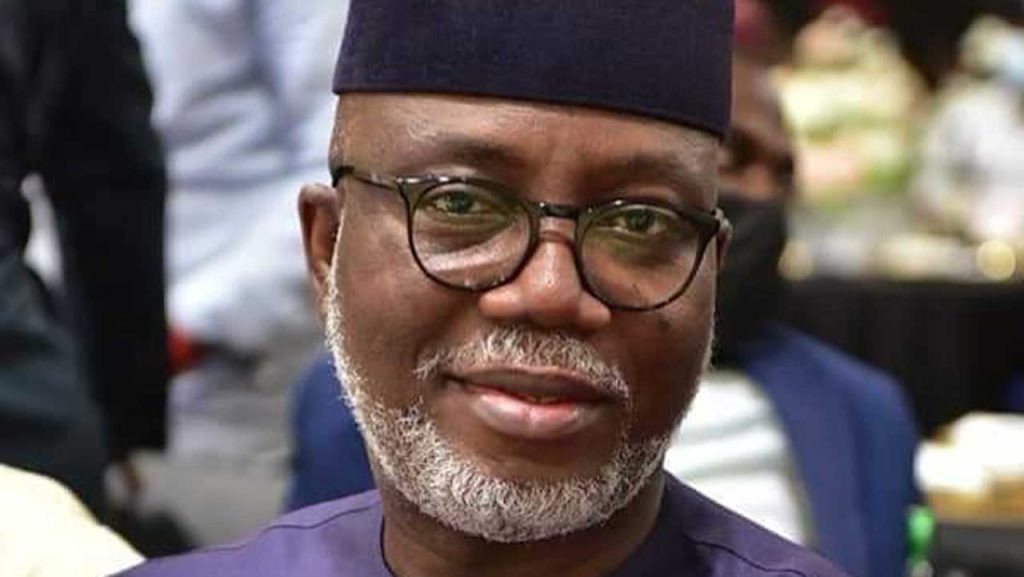Security, the economy, education, energy, and workers’ welfare were top priorities when two leading candidates for the upcoming November 16, 2024 governorship election in Ondo State Nigeria faced off in a debate in Akure, the state capital, on Sunday.
Candidates Lucky Aiyedatiwa and Agboola Ajayi engaged in a heated two-hour debate, presenting their proposed policies and programmes should they be elected governor of the Sunshine State.
Beyond sharing their plans for the state, the debate saw the two candidates exchanging barbs and accusations, with moments of sardonic laughter typical of political debates.
The debate, held from 7 pm to 9 pm, was organised by Channels Television in partnership with the Nigeria Civil Society Situation Room and the UK International Development. Channels Television’s Seun Okinbaloye moderated the session.

While the electoral body has listed 17 parties fielding candidates for the election, analysts expect a two-horse race between Ajayi of the Peoples Democratic Party (PDP) and the incumbent Governor Aiyedatiwa of the All Progressives Congress (APC) — both former deputies to the late Governor Rotimi Akeredolu.
Ajayi served as deputy to Akeredolu during his first term from February 2017 to February 2021, while Aiyedatiwa became deputy during the late governor’s second term until Akeredolu’s death in December 2023. Aiyedatiwa, who subsequently assumed office, is now seeking election as governor following the end of Akeredolu’s term in February 2025.
The two candidates are vying for the support of the 2.053 million registered voters in the state on 16 November 2024.
Securing Ondo
The debate began with the security challenges facing the state, from kidnappings to violent killings.
Ajayi argued that Ondo has become unsafe under Aiyedatiwa’s leadership, citing repeated attacks on traditional rulers and residents by criminals. He reminded the audience that the state’s Amotekun security corps was created during his time as deputy governor and criticised Aiyedatiwa for claiming credit for the agency’s efforts. Ajayi also accused Aiyedatiwa of mismanaging security funds, alleging he spends N1.2bn on security votes with “nothing to show for it.”
Aiyedatiwa, however, countered that the rise in kidnappings and killings occurred during Ajayi’s tenure as deputy governor. He dismissed Ajayi’s comments about security spending as “political lies,” though he declined to specify his exact security budget, citing the sensitivity of the matter.
The governor expressed support for state policing and proposed strengthening the Amotekun corps for greater efficiency. He noted that forest rangers were already being deployed to border communities, while Ajayi insisted that kidnappings and killings were ongoing.
Ajayi advocated tackling unemployment through job creation to reduce insecurity, adding, “Keep everyone busy, and they will let you do your job.” He promised to bolster Amotekun’s capabilities, urging that the agency should not be used in elections.
Harnessing Ondo’s Resources
The second segment of the debate focused on the economic development of the state, particularly the potential for value addition in agriculture and mining.
Ajayi criticised the governor’s efforts in economic growth, claiming, “No single oil factory in Ondo – they are dead.” He pledged to establish cocoa processing factories and promote the export of cash crops to harness the state’s mineral and agricultural wealth. He also promised to create a regulatory body to work with the federal government to protect natural resources from unregulated mining.
Aiyedatiwa dismissed Ajayi’s claims, stating that economic investments were ongoing. He argued that Ajayi’s criticisms stemmed from a lack of awareness, adding, “Politicians come with promises, but we are already delivering.” He further mentioned that certain agricultural ventures are managed by the private sector, rather than by the government.
The incumbent also highlighted his economic management skills, boasting, “Since I assumed office, we haven’t borrowed, nor have we needed to,” attributing this to his careful handling of state funds. Aiyedatiwa explained that the removal of subsidies had increased funds available to state governors, which he was using to alleviate economic hardship.
Ajayi defended borrowing for development, criticising the governor for not initiating any major projects with the funds he has received. He also pledged to raise the minimum wage for civil servants to N76,000, slightly higher than Aiyedatiwa’s current offer of N73,000.
After two hours, the debate concluded with the candidates sharing a gesture of sportsmanship, leaving the final decision to the voters on November 16, 2024.


